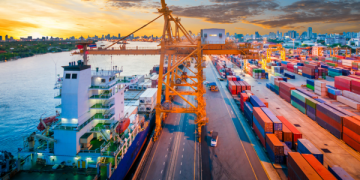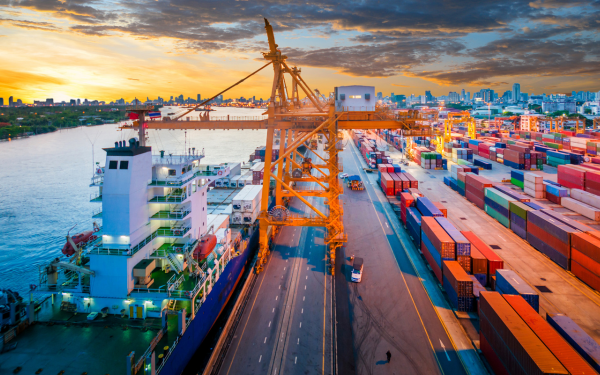Adani Ports and Special Economic Zone Ltd. (APSEZ), a flagship entity of the Adani Group, has emerged as a leader in India’s logistics and port management sector. With a robust strategy focused on operational excellence and expansion, the company is well-poised to achieve significant revenue and operating profit growth in the coming years. Here’s a closer look at their journey and future prospects.
Ambitious Growth Plans
APSEZ has set a target to handle 1 billion tonnes of cargo by 2030, underpinned by a compound annual growth rate (CAGR) of 12% in domestic cargo. This ambitious goal is complemented by the company’s plans for selective international expansion, particularly in Southeast Asia, Africa, and the Middle East.
The Investor Day 2024 event highlighted these objectives, reinforcing the company’s commitment to maintaining its leadership in India’s logistics sector. Notably, the logistics division is expected to be a significant driver, with projected CAGRs of 46% in revenue and 48% in EBITDA from fiscal 2024 to 2029.
Technological Advancements in Port Operations
APSEZ continues to leverage technology to enhance its port operations. A significant milestone is the development of the Vizhinjam Port, India’s first semi-automatic transshipment terminal, scheduled to commence operations in December 2024. Initially, the port will handle 1 million TEUs (twenty-foot equivalent units), with plans to expand capacity to 3 million TEUs by 2028. This strategic asset will further solidify APSEZ’s position in the transshipment market.
Strengthening Logistics Infrastructure
APSEZ is also focusing on multimodal logistics solutions to boost efficiency and reduce costs. Its logistics strategy encompasses services like:
- Container and non-container cargo movement
- Warehousing facilities
- Development of multimodal logistics parks
These initiatives aim to streamline supply chains for businesses across India and beyond, creating a comprehensive logistics ecosystem.
Financial Resilience and Improved Metrics
The company has made significant strides in improving its financial health. APSEZ reduced its net debt-to-EBITDA ratio from 3.3x in fiscal 2021 to 2.0x in H1 fiscal 2025, reflecting better balance sheet management. This improvement not only enhances investor confidence but also positions the company for further capital investments in infrastructure and technology.
Challenges and Opportunities
While APSEZ’s growth trajectory is promising, potential risks cannot be ignored. Market analysts have pointed out that adverse developments at the group level could pose challenges. However, the company’s operational strength, coupled with strategic planning, is likely to mitigate these risks effectively.
Conclusion
Adani Ports and Special Economic Zone Ltd. is charting a path of growth and innovation in the logistics and port management sectors. With ambitious targets, a focus on technology, and robust financial metrics, APSEZ is not just meeting the demands of the present but also building a future-ready infrastructure.
As global trade continues to expand, companies like APSEZ play a pivotal role in ensuring seamless supply chain operations. The logistics industry will undoubtedly keep a close watch on how this Indian giant shapes the future of cargo movement and port management, both domestically and internationally.
For more updates on the global logistics industry, stay tuned to The Logistic News.























